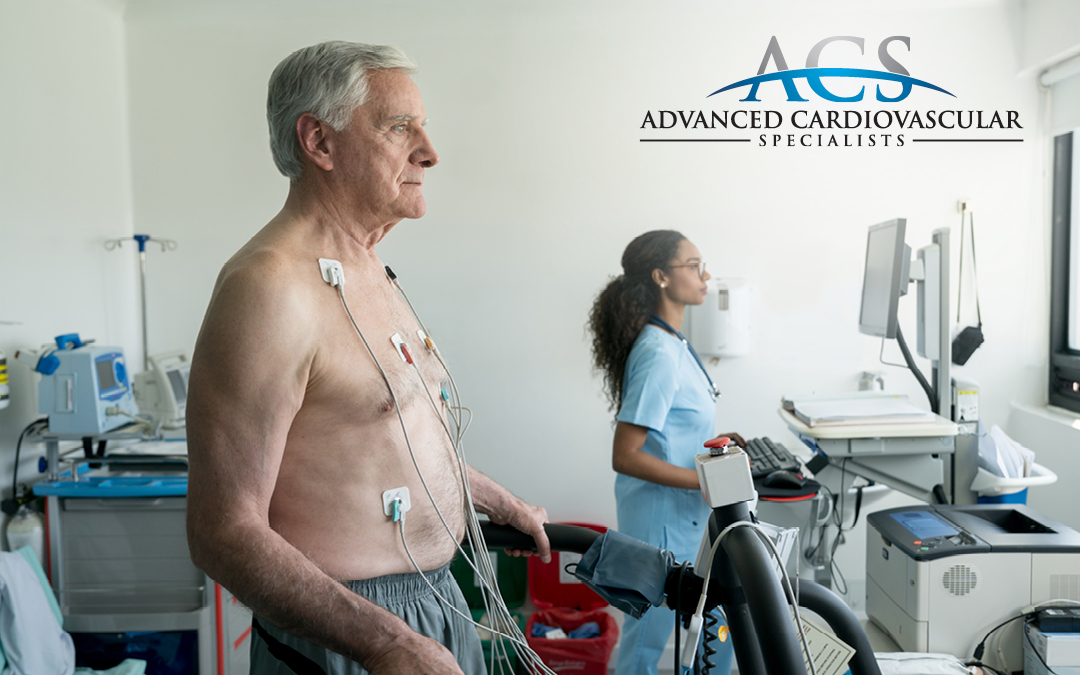Stress tests are used to help diagnose heart problems and monitor patients with heart conditions. During a stress test, your heart rate, heart rhythm, blood pressure and breathing are monitored and evaluated before, during and after exercise, which is usually performed on a treadmill. Because your heart pumps harder during physical activity, stress tests are a highly effective way to detect problems with blood flow and identify if you are at risk for a heart attack. In some situations your physician may substitute walking on the treadmill with a chemical agent that simulates exercise.
Stress tests can help your doctor identify the cause of symptoms, such as chest pain, shortness of breath or dizziness, and determine your risk of heart disease or other related conditions. The test can also be used to reveal heart rhythm changes that may be occurring during exercise or to create a safe exercise plan. Stress tests may also be used to check the effectiveness of a previous procedure or treatment.
There are a number of reasons why your doctor may recommend a stress test. As it can be used to diagnose heart rhythm problems and coronary artery disease, your doctor may perform a stress test if you have signs or symptoms of these conditions. A stress test may also be undertaken to help create a treatment plan, measure the effectiveness of treatment or monitor any changes in patients with heart conditions.
It is also a good idea to ask your doctor about having a stress test if you:
- Are a smoker.
- Have a family history of heart disease.
- Have high blood pressure.
- Have high cholesterol.
- Have diabetes.
- Are overweight.
- Are experiencing chest pains.
Stress tests are noninvasive and very safe. The test will be monitored by one or more medical professionals who will stop the test if you develop chest pain, if your blood pressure reaches a level of concern, if you experience severe shortness of breath, if the ECG shows that your heart isn’t receiving enough oxygen or if you have another symptom that prevents you from finishing the test.
Your doctor will provide complete instructions about how to prepare for a stress test, but general tips include:
- Do not eat or drink prior to your appointment.
- Check with your cardiologist, and take appropriate medications.
- Avoid coffee or caffeine.
If you would like to learn more about stress tests and whether you need a stress test, please call the Advanced Cardiovascular Specialists at (318) 798-9400 to schedule a consultation.

